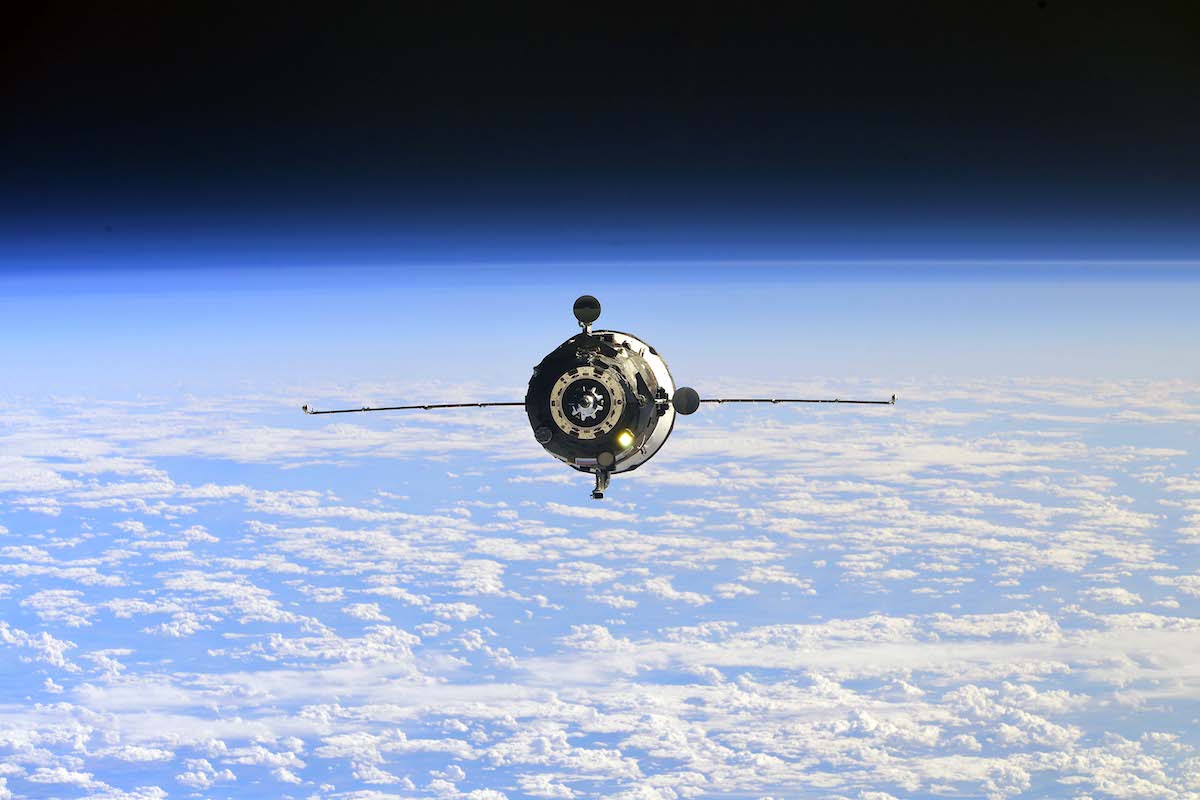
Two days after launching from Kazakhstan, a Russian Progress cargo freighter docked with the International Space Station on autopilot Thursday with a fresh delivery of food, crew supplies, experiments, and CubeSats that will be released outside the complex on a future spacewalk.
The Progress MS-19 spacecraft docked with the space station’s Poisk module at 2:03 a.m. EST (0703 GMT) Thursday. The final approach occurred on autopilot, with the Progress spacecraft’s on-board computer receiving navigation data from a Kurs rendezvous radar.
The docking occurred as the space station soared 270 miles (434 kilometers) over the South Pacific Ocean.
Cosmonauts Anton Shkaplerov and Pyotr Dubrov planned to open hatches leading to the Progress spacecraft and begin unpacking the cargo inside. The Progress MS-19 spacecraft is scheduled to remain at the station until next February, a stay of around 370 days.
The mission launched at 11:25 p.m. EST Monday (0425 GMT Tuesday) from the Baikonur Cosmodrome in Kazakhstan. A liquid-fueled Soyuz rocket placed the Progress MS-19 cargo ship into orbit, then the Progress used its own thrusters to maneuver toward the space station.
The arrival of Progress MS-19 at the station marked the first docking at the orbiting outpost this year. The Progress mission is the first of two unpiloted cargo freighters heading to the International Space Station within a week.
NASA and Northrop Grumman teams in Virginia are preparing for launch of a Cygnus cargo ship Saturday on a commercial Antares rocket. Teams rolled the rocket out to its launch pad at Wallops Island, Virginia, earlier this week.
If that launch occurs on time, the Cygnus spacecraft is scheduled to arrive at the station Monday, Feb. 21.
Roscosmos, Russia’s space agency, said the Progress MS-19 spacecraft delivered around 5,562 pounds (2,523 kilograms) of supplies to the station.
Russian ground teams loaded 3,598 pounds (1,632 kilograms) of dry cargo into the Progress freighter’s pressurized compartment, according to Roscosmos. The space agency said the mission carries 950 pounds (431 kilograms) of propellant to refuel the station’s Zvezda module propulsion system, 926 pounds (420 kilograms) of fresh drinking water, and 88 pounds (40 kilograms) of compressed gas to replenish the space station’s breathing air.
The equipment the Progress mission ferried to the space station included six Russian student-built CubeSats, which will be deployed outside the outpost by Russian cosmonauts on a spacewalk later this year. The six YuZGU CubeSats — each about the size of a shoebox — come from Southwest State University in Kursk, Russia.
The Progress MS-19 supply ship also delivered kits for an experiment studying how long-duration spaceflight affects the work of cosmonauts, and cargo for research investigations probing the effects of bacteria on spacecraft structures.
There are also items aboard the Progress MS-19 mission for a plant and microbiology experiments, and equipment to support investigations involving the production of pharmaceuticals in microgravity.
Email the author.
Follow Stephen Clark on Twitter: @StephenClark1.
